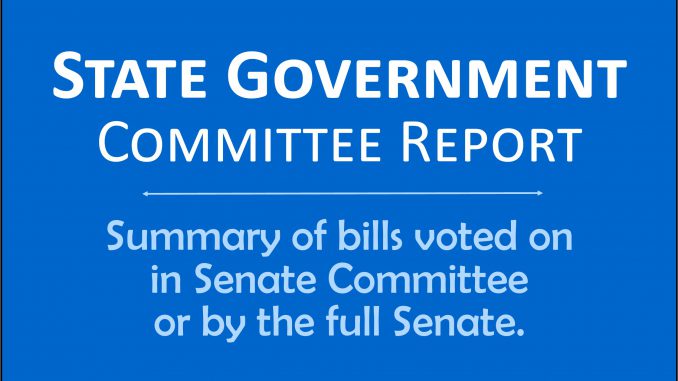
On this page
FLOOR ACTION:
HF 2259 – Human trafficking prevention lodging certification for state employees
HF 2259 requires the Office to Combat Human Trafficking (OCHT), in collaboration with other relevant partners, to develop a human trafficking prevention training program. Lodging providers within the State may choose to voluntarily participate in the training. The Commissioner of Public Safety must develop and maintain a way to certify a lodging provider’s voluntary completion of human trafficking prevention training by December 31, 2021.
The bill specifies that a public employer or a public employee must confirm a lodging provider’s current certification status prior to using any public funds for or at that establishment. This applies to all public funds expended on or after January 1, 2022. Under the bill, a lodging provider’s employee who acts in good faith is immune from civil liability for reporting suspected human trafficking to law enforcement. There is a fiscal note of $156,00 for FY21 and $137,000 for FY22 for the Department of Public Safety.
[6/10: 49-0 (Excused: Bisignano)]
HF 2486 – Treasurer’s Seal/Voter Suppression Amendment
HF 2486 relates to the design and use of county seals. Under current law, a county treasurer must keep the official county seal. The bill strikes the requirement that the county seal include the word “treasurer.” The bill allows the impression or likeness of the applicable county seal to be included on a ballot.
The Senate adopted a strike-all amendment that takes a one-sentence, non-con bill about the design of county seals and replaces it with 30 pages of highly damaging and divisive voter suppression changes that include these key points:
- Eliminating the Secretary of State’s (SOS) ability to change election rules during the current pandemic.
- Allowing the Legislature or Legislative Council to rescind an SOS emergency declaratory order.
- Prohibiting SOS from modifying methods for conducting elections if federal offices are on the ballot.
- Prohibiting the SOS from modifying requirements for Voter ID or absentee ballot request and delivery.
- Prohibiting county auditors from reducing polling locations by more than 35%.
- Prohibiting county auditor from filling in absentee ballot request information “by best means available.” Instead, county auditor must call, email or mail applicants to obtain missing information.
- Allowing another auditor to oversee a recount and report inconsistencies to SOS.
- Requiring voter ID to vote early.
- Increasing signatures to run for statewide/federal office.
- Stripping presidential electors of their First Amendment rights. Electors would have to vote for their party’s nominee. A law that locks in electors to the party nominees may be unconstitutional.
- Prohibiting SOS from doing a mass absentee request mailing.
- Prohibiting county auditors from mailing ballots to everyone.
[6/10: 30-19 (No: Democrats, Kapucian, Lofgren; Excused: Bisignano)]
HF 2540 – Creation of a charity wine, beer or spirits permit
HF 2540 creates a charity wine and beer event permit for a charity event held by a nonprofit. An authorized nonprofit can hold a charity event and serve attendees beer, spirits and wine, regardless of whether the entity charges an admission fee to the event or collects the cost of the beer, spirits and wine served from the event’s attendees. An application for a charity beer, spirits and wine event permit must include the location, date and time when the event is to be conducted. A certification that proceeds from the charity beer, spirits and wine event are solely for educational, religious or charitable purposes must be displayed.
The Senate adopted a strike-all amendment that includes:
- Division I – is the original bill, HF 2540.
- Division II – is HF 2514, which passed the House 98-0 on March 12, allowing for the sale of wine in containers no larger than 72 ounces (growler). This applies to a person holding a class “B” wine permit, class “B” native wine permit and a class “C” native wine permit.
- Division III – allows class “C” liquor control licensees to sell liquor, wine, and mixed drinks or cocktails for off-premises consumption. Mixed drinks or cocktails will not be deemed an open container if the sealed container is unopened and the seal has not been tampered with, and the contents of the container have not been partially removed. It also allows purchase of beer growlers by telephone or electronic means. This codifies the Governor’s proclamations regarding carry-out drinking/alcohol during the pandemic.
- An amendment to strike Division III of the bill failed.
[6/12: 44-4 (No: Quirmbach, Costello, Guth, Rozenboom; Excused: Feenstra, Hogg)]
